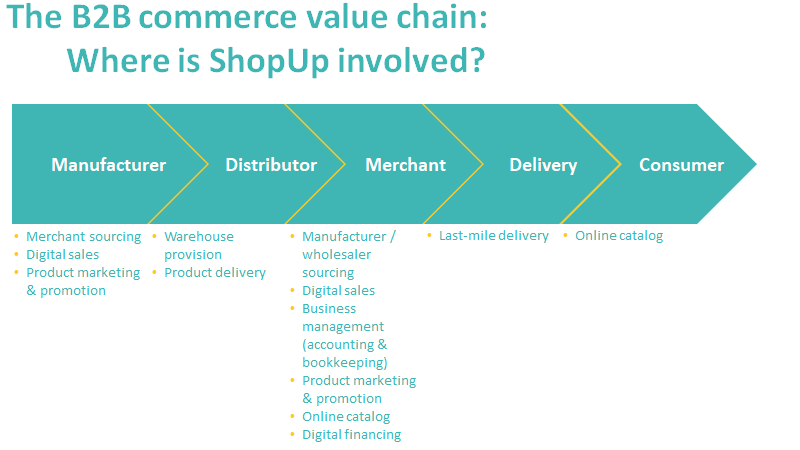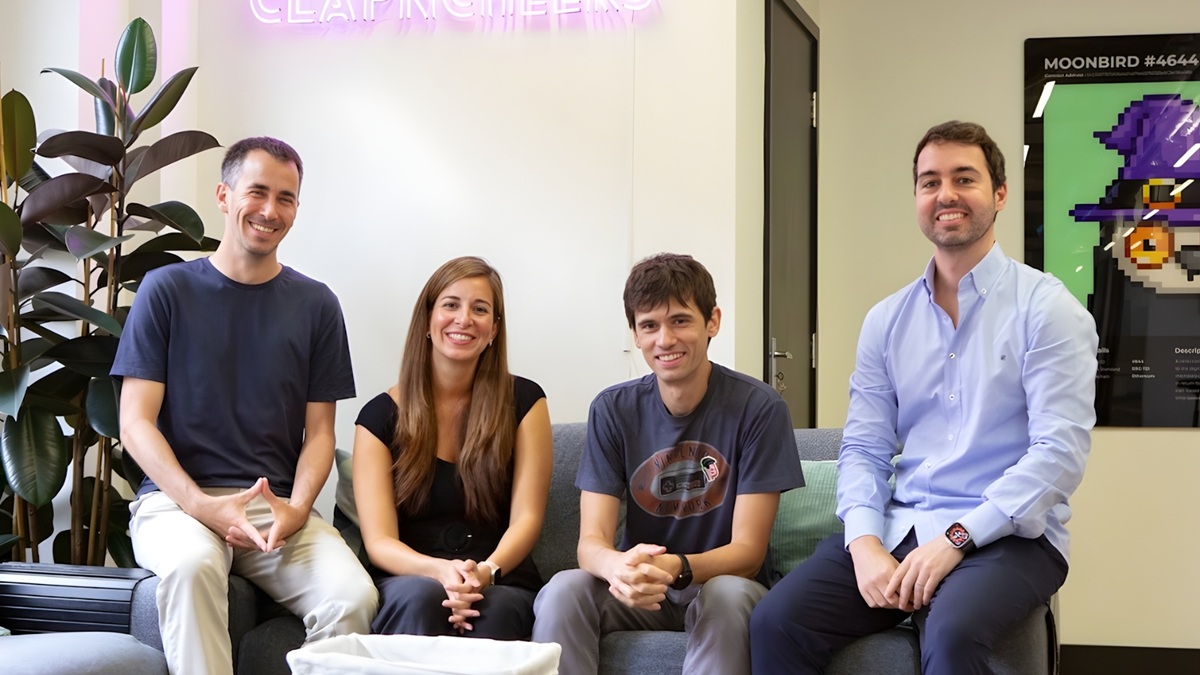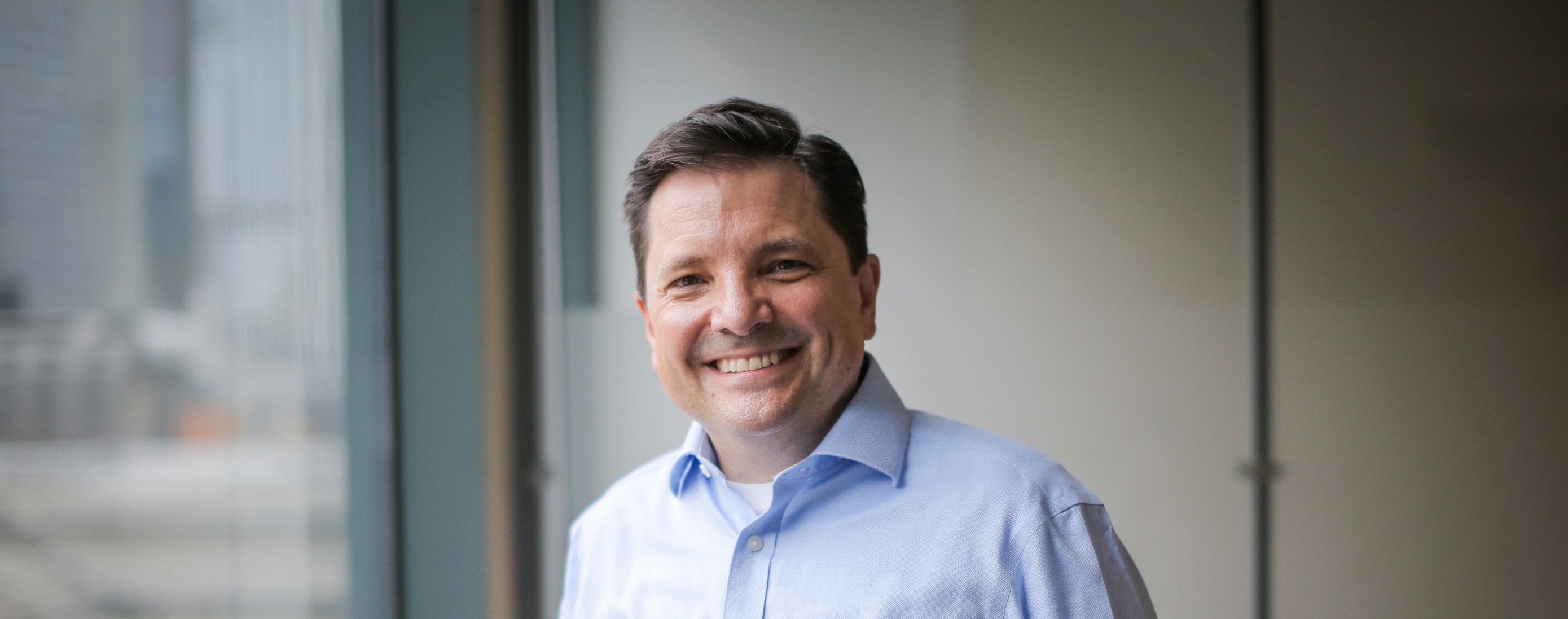When Afeef, Ataur and Siffat first pitched us their vision for ShopUp to become the next Asian “digital commerce sensation” in Bangladesh, our market opportunity ears pricked up.
Here’s why.
Bangladesh is one of the biggest and fastest-growing frontier markets in the world. With a population of 166M people needing to fit into a country the size of Greece, the opportunity for unrivaled digital commerce reach and product adoption is hard to ignore. According to the Bangladesh Telecommunication Regulatory Commission, Internet penetration is already at 100M people and rising fast. Not only that, but data indicates that the country’s entrepreneurial drive and culture is astounding:
- 60% of the country is self-employed
- 8% GDP growth
- formal jobs have a less than 1% growth rate
This tells you that the country’s productivity increase is largely driven by entrepreneurs who often lack access to a “formal job”. ShopUp has created the perfect tool to encourage and harness that drive.
The One-Stop Shop (Up)
At its core, ShopUp enables offline and online neighborhood mom-and-pop shops to sell through digital, social and retail channels. They do so, however, in such a way that they are deeply integrated at every section of the value chain. The company stands on four major pillars:
- Sourcing: the B2B marketplace between wholesalers/manufacturers and a variety of merchants facilitates product sourcing and increases volumes, variety and exposure for both sides;
- Shop Management: the business management software tool has integrated marketing, accounting, invoicing and CRM functionality allowing merchants to operate their store independently, digitally and efficiently;
- Logistics & Distribution: ShopUp reliably fulfills both wholesalers and merchants’ orders through a partner distribution network and a proprietary last-mile delivery system;
- Credit: after becoming trusted partners for a certain period of time, ShopUp gives merchants the possibility to fund business growth via access to digital financing, such as collateral-free credit for working capital.
I mean, not to use the venture industry’s favorite buzzword here, but this truly is a “full-stack solution” (see Figure 1 below). And this comes at the same time Facebook is pushing further into digital commerce (or more specifically, social commerce) through the creation of Facebook Shops, a move that will only extend ShopUp’s reach.

Market Opportunity vs. Product Innovation
Oftentimes, when making a decision in early-stage investing, the market opportunity is more important than the novelty of the idea or product. This is especially true when talking about markets that can accommodate a number of players; a market, let’s say, like B2B commerce.
It represents such a gigantic opportunity that there’s plenty of room for specialized players in different market segments. You’ve got Alibaba that started with B2B exports, Wish for Chinese imports, Zappos / Zalando who specialized in shoes, Lazada in Indonesia; I could go on and on… All of these are market leaders in their respective verticals or countries. In these instances, being the first mover does not always represent an advantage.
Intuitively, it makes sense. By being early enough to still address an underserved market, but being late enough to gauge customer reception and avoid making initial (company-killing) mistakes, founders can adapt to a changing landscape, learn from others’ mistakes and capitalize on existing resources. Call it being fashionably late. Serving over 200,000 businesses in the apparel industry, ShopUp is nothing if not fashionable.
Improvise. Adapt. Overcome
The thing about betting on a market opportunity is that it relies heavily on the team’s execution capability. While I could talk about how we are convinced and impressed by Afeef, Ataur and Siffat’s past achievements, background and complementary abilities (and we most definitely are), the current crisis gave us a taste of what this team is truly capable of.
The company was, in principle, focusing on serving the clothes and attire industries, Bangladesh being the second-largest apparel hub in the world. As the pandemic and global crisis hit, the team decided to amplify their fast-moving consumer goods (FMCG) arm and double down on their last-mile logistics service, a choice that has put them at the forefront of Bangladeshi B2B commerce and has planted the seeds of market leadership. The company adapted to a changing landscape and capitalized on existing resources, the quintessential “market opportunity” move.
Personality goes a long way
This ability to execute may be based on something that is often overlooked by founders, something on which ShopUp places a particular emphasis: company culture. Yes, founders have heard about the virtues of company culture countless times and it is now a vital part of any newfound enterprise, but it is all too common for them to only talk the talk. This founding team’s execution applies not only externally towards their clients but also internally towards their employees.
At ShopUp, there is not a single all-hands meeting where the subject is not tied in some way or another to their core principles (I say principles because values can often be too abstract), they recognize and reward cultural leaders, they continuously celebrate cultural moments and upholdings. Business decisions are taken both with the financial growth of the company in mind and with the advancement of its culture. Afeef, Ataur and Siffat truly believe that one cannot exist without the other. We didn’t have to look at the crisis to know that the founders of ShopUp execute outside and inside the company.
Empowering Entrepreneurship

Azizul Islam from Nandita Fashion Wholesale. Currently Uses ShopUp’s Lead Generation Tool and B2B Marketplace
At the end of the day, ShopUp is giving Bangladeshis, who are often pushed into self-employment by the scarcity of formal jobs, the tools they need to establish and operate their business, and thereby define their own destinies. In doing so it is accelerating the creation of jobs in the region and propelling the digitalization of the industries they target. The country is rapidly growing and primed for a super-platform, one that, like ShopUp, empowers entrepreneurs.
This truly unique combination of market opportunity, an all-encompassing solution, driven team and overall potential for large-scale impact makes this an irresistible investment. Along with Sequoia Capital India and Flourish Ventures, we look forward to working with ShopUp for years to come.







